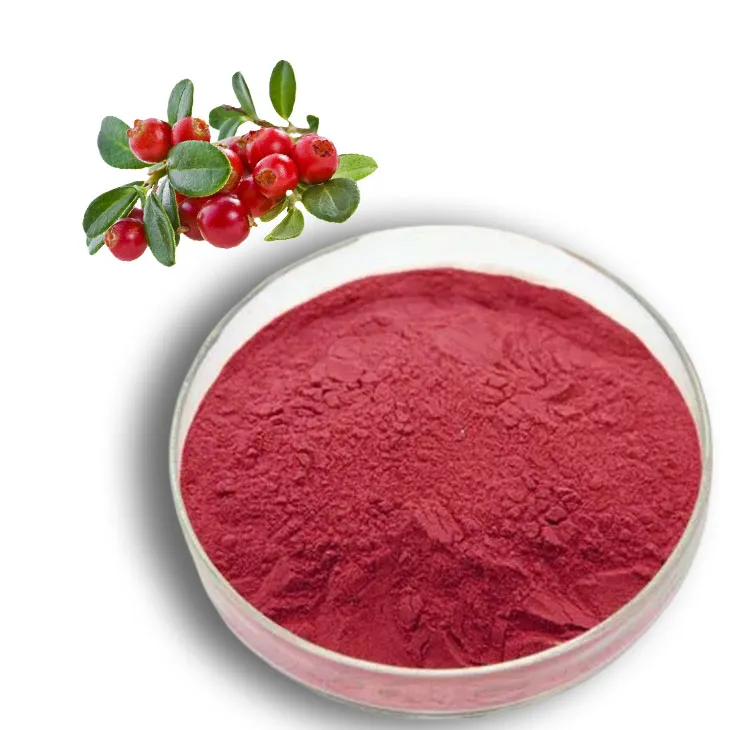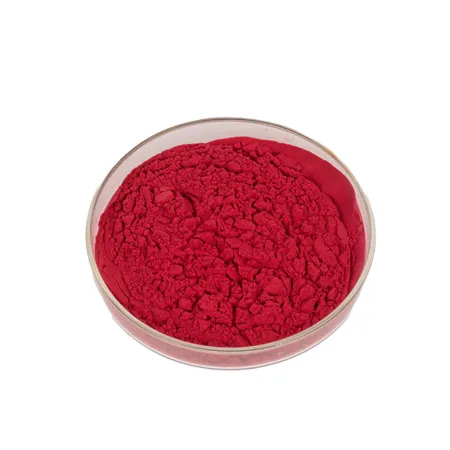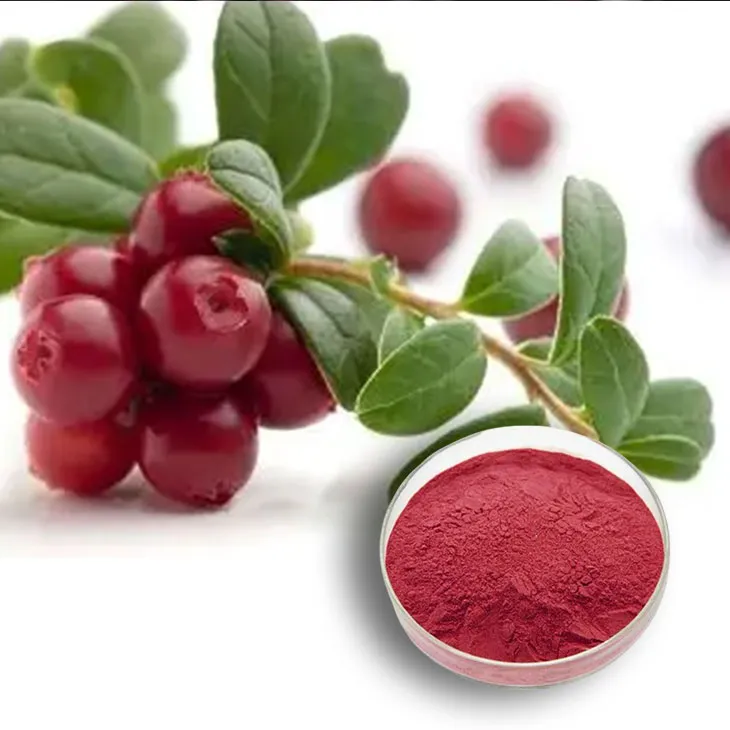- 0086-571-85302990
- sales@greenskybio.com
Understanding Private - Label Cranberry Extract: A Comprehensive Guide
2024-12-11

1. Introduction
Private - label Cranberry Extract has been gaining significant importance in the health and wellness industry. As consumers become more health - conscious, they are increasingly looking for natural remedies and supplements. Cranberry Extract, with its numerous potential health benefits, has emerged as a popular choice. This comprehensive guide will explore various aspects of private - label Cranberry Extract, from its source to its efficacy, components, and suitable target populations, enabling you to make an informed decision.

2. Source of Cranberry Extract
Cranberries are native to North America and are typically grown in bogs. The extraction process begins with harvesting ripe cranberries. These cranberries are then processed to obtain the extract.
2.1 Harvesting
Cranberries are harvested in the fall when they reach maturity. There are two main methods of harvesting: wet harvesting and dry harvesting.
- Wet harvesting: This method involves flooding the cranberry bogs with water. The ripe cranberries float to the surface and can be easily collected. It is a more efficient method for large - scale production.
- Dry harvesting: In this case, mechanical pickers are used to directly pick the cranberries from the vines. Dry - harvested cranberries are often used for fresh consumption or for making products where the whole berry is required.
2.2 Extraction Process
After harvesting, the cranberries are processed to extract the beneficial compounds. There are several extraction methods, including solvent extraction and supercritical fluid extraction.
- Solvent extraction: This involves using solvents such as ethanol or water to dissolve the active compounds in the cranberries. The resulting solution is then purified to obtain the cranberry extract. However, this method may leave some solvent residues, although strict quality control measures are in place to ensure safety.
- Supercritical fluid extraction: This is a more advanced method that uses supercritical carbon dioxide as the extraction medium. It has the advantage of being able to extract a wide range of compounds with high purity and without leaving harmful residues.

3. Components of Cranberry Extract
Cranberry extract is rich in various bioactive components, which contribute to its potential health benefits.
3.1 Proanthocyanidins
Proanthocyanidins are a type of flavonoid found in cranberry extract. They are known for their antioxidant properties. These compounds can help neutralize free radicals in the body, which are associated with various chronic diseases, such as heart disease and cancer.
3.2 Anthocyanins
Anthocyanins are responsible for the red - purple color of cranberries. They also have antioxidant and anti - inflammatory effects. In addition, anthocyanins may play a role in improving cardiovascular health and protecting against certain types of cancers.
3.3 Organic Acids
Cranberry extract contains organic acids such as citric acid, malic acid, and quinic acid. These acids contribute to the tart taste of cranberries and may also have some health - promoting effects. For example, they can help maintain the acid - base balance in the body and support digestive function.

4. Potential Health Benefits
The components in cranberry extract are associated with a range of potential health benefits.
4.1 Urinary Tract Health
One of the most well - known benefits of cranberry extract is its positive impact on urinary tract health. Proanthocyanidins in cranberry extract can prevent bacteria, particularly Escherichia coli (E. coli), from adhering to the walls of the urinary tract. This helps reduce the risk of urinary tract infections (UTIs).
4.2 Cardiovascular Health
The antioxidant and anti - inflammatory properties of cranberry extract may contribute to cardiovascular health. It can help reduce oxidative stress and inflammation in the blood vessels, which are risk factors for heart disease. Additionally, cranberry extract may have a positive effect on blood lipid levels, such as reducing LDL (bad) cholesterol and increasing HDL (good) cholesterol.
4.3 Anti - Inflammatory Effects
The anthocyanins and other bioactive components in cranberry extract have anti - inflammatory properties. Chronic inflammation is associated with many diseases, including arthritis, diabetes, and certain cancers. By reducing inflammation, cranberry extract may help prevent or manage these conditions.
4.4 Oral Health
Cranberry extract may also be beneficial for oral health. Its antibacterial properties can help combat oral bacteria, which are responsible for dental plaque formation, cavities, and gum disease. Some studies suggest that cranberry extract can be used as an adjunct in oral hygiene products.

5. Quality Control and Standardization
When it comes to private - label cranberry extract, quality control and standardization are crucial.
5.1 Quality Control
Manufacturers need to ensure that the cranberries used for extraction are of high quality. This includes proper harvesting, handling, and storage of the cranberries. During the extraction process, strict quality control measures are implemented to monitor factors such as purity, potency, and safety.
5.2 Standardization
Standardization of cranberry extract involves ensuring that the product contains a consistent amount of the active components. This is important for ensuring the effectiveness and reliability of the product. Different products may be standardized to different levels, depending on their intended use and market requirements.
6. Suitable Target Populations
Cranberry extract may be beneficial for various populations.
6.1 Women
Women are more prone to urinary tract infections due to their anatomical structure. Cranberry extract can be a natural and effective preventive measure for women at risk of UTIs. It can also be beneficial during pregnancy, as it provides a natural way to support urinary tract health without the use of antibiotics, which may have potential risks during pregnancy.
6.2 Elderly People
As people age, their immune system may weaken, and they may be more susceptible to various health problems. The antioxidant and anti - inflammatory properties of cranberry extract can help support the overall health of the elderly. In addition, the potential benefits for urinary tract health are particularly important for the elderly, as they may have a higher risk of developing UTIs.
6.3 People with Chronic Diseases
For those with chronic diseases such as heart disease, diabetes, or arthritis, cranberry extract may offer additional support. Its anti - inflammatory and antioxidant effects can help manage the symptoms and progression of these diseases. However, it is important to consult a healthcare provider before starting cranberry extract supplementation, especially if taking medications for these conditions.
7. How to Choose the Right Private - Label Cranberry Extract
When choosing a private - label cranberry extract, there are several factors to consider.
7.1 Product Quality
Look for products that are produced by reputable manufacturers with strict quality control measures. Check for certifications such as Good Manufacturing Practice (GMP) certification. Also, consider the extraction method used, as supercritical fluid extraction may produce a higher - quality extract.
7.2 Ingredient Label
Read the ingredient label carefully. Ensure that the product contains a sufficient amount of the active components, such as proanthocyanidins. Avoid products with excessive additives or fillers.
7.3 Customer Reviews
Check customer reviews and testimonials. This can give you an idea of the effectiveness and safety of the product. However, be cautious of overly positive or negative reviews that may be influenced by other factors.
8. Conclusion
Private - label cranberry extract offers a range of potential health benefits, from urinary tract health to cardiovascular protection and anti - inflammatory effects. Understanding its source, components, potential benefits, quality control, and suitable target populations can help consumers make an informed choice when selecting a cranberry extract product. By considering factors such as product quality, ingredient label, and customer reviews, consumers can ensure that they are choosing a high - quality cranberry extract that meets their health needs.
FAQ:
What is private - label cranberry extract?
Private - label cranberry extract refers to cranberry extract that is produced for a specific brand or company under their own label. It is typically sourced from cranberries and processed to extract beneficial compounds for various uses in the health and wellness industry.
Where does cranberry extract come from?
Cranberry extract comes from cranberries, which are native to North America. These small, red berries are harvested, and then through various extraction methods, the active and beneficial components are isolated to create the cranberry extract.
What are the main health benefits of cranberry extract?
Cranberry extract is known for several health benefits. It may help prevent urinary tract infections by preventing bacteria from adhering to the urinary tract walls. It also has antioxidant properties, which can help combat oxidative stress in the body. Additionally, it may contribute to heart health by reducing inflammation and improving blood lipid profiles.
What are the key components in cranberry extract?
The key components in cranberry extract include proanthocyanidins, which are responsible for its anti - adhesion properties related to urinary tract health. It also contains various vitamins such as vitamin C, minerals, and other phenolic compounds that contribute to its antioxidant and overall health - promoting effects.
Who can benefit from using cranberry extract?
Many people can benefit from using cranberry extract. Women, in particular, may find it useful for preventing urinary tract infections. People concerned with heart health or those looking to boost their antioxidant intake can also benefit. However, it is always advisable to consult a healthcare professional before starting any new supplement, especially for individuals with pre - existing medical conditions or those taking medications.
Related literature
- The Health Benefits of Cranberry Extract: A Review of Current Research"
- "Cranberry Extract in the Prevention of Urinary Tract Infections: Mechanisms and Efficacy"
- "Composition and Bioactivity of Cranberry Extract: Implications for Health"
- ▶ Hesperidin
- ▶ citrus bioflavonoids
- ▶ plant extract
- ▶ lycopene
- ▶ Diosmin
- ▶ Grape seed extract
- ▶ Sea buckthorn Juice Powder
- ▶ Beetroot powder
- ▶ Hops Extract
- ▶ Artichoke Extract
- ▶ Reishi mushroom extract
- ▶ Astaxanthin
- ▶ Green Tea Extract
- ▶ Curcumin Extract
- ▶ Horse Chestnut Extract
- ▶ Other Problems
- ▶ Boswellia Serrata Extract
- ▶ Resveratrol Extract
- ▶ Marigold Extract
- ▶ Grape Leaf Extract
- ▶ blog3
- ▶ blog4
- ▶ blog5
-
Pure 85% Tomentil Extract.
2024-12-11
-
Buckthorn bark extract
2024-12-11
-
Beetroot Powder
2024-12-11
-
Ginseng Root Extract
2024-12-11
-
Chaste Berry Extract
2024-12-11
-
Coconut Water Powder
2024-12-11
-
Eyebright Extract
2024-12-11
-
Hops Extract
2024-12-11
-
Sophora Japonica Flower Extract
2024-12-11
-
Honeysuckle Pollen
2024-12-11
-
Polygonum multiflorum extract
2024-12-11





















